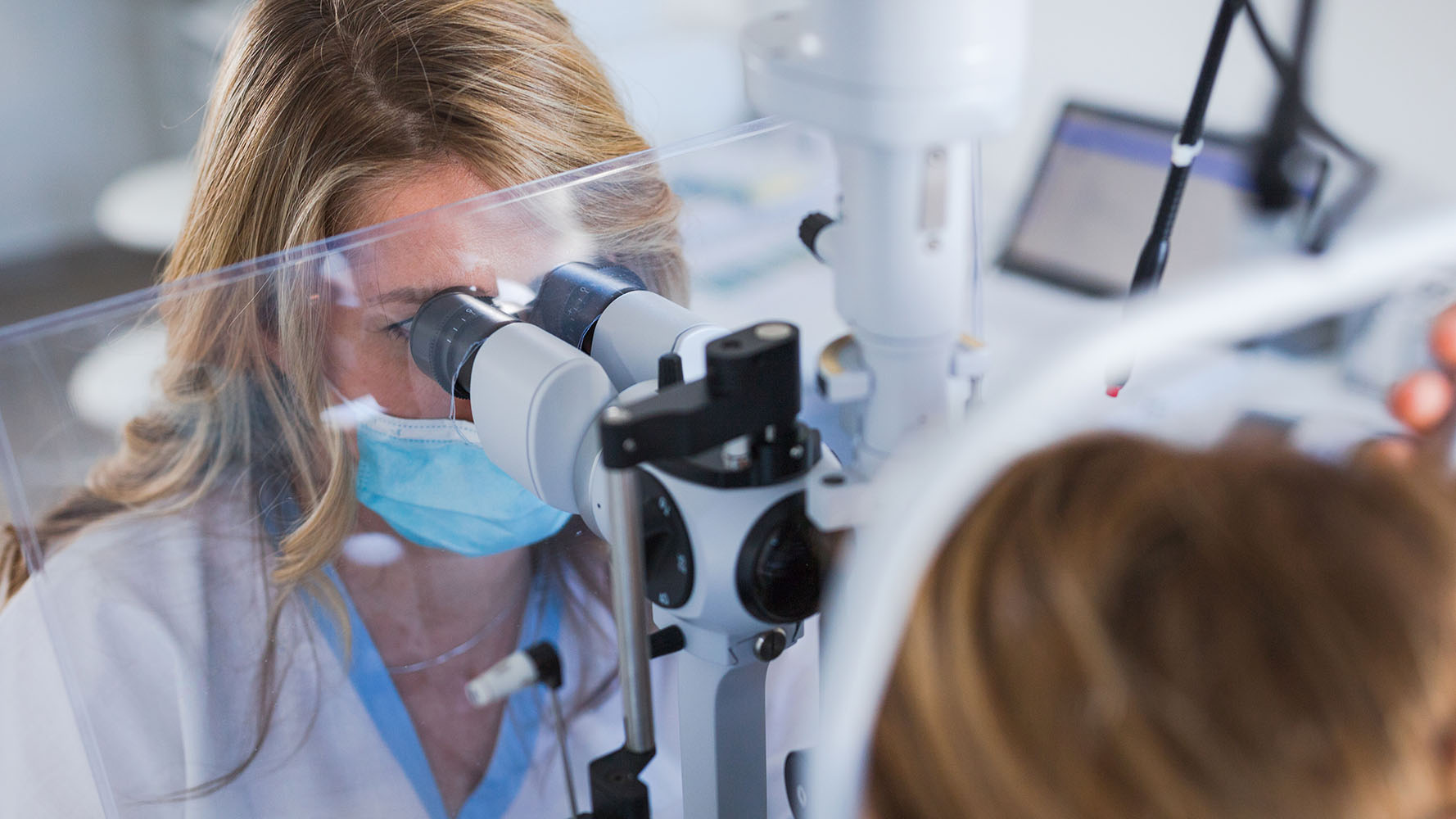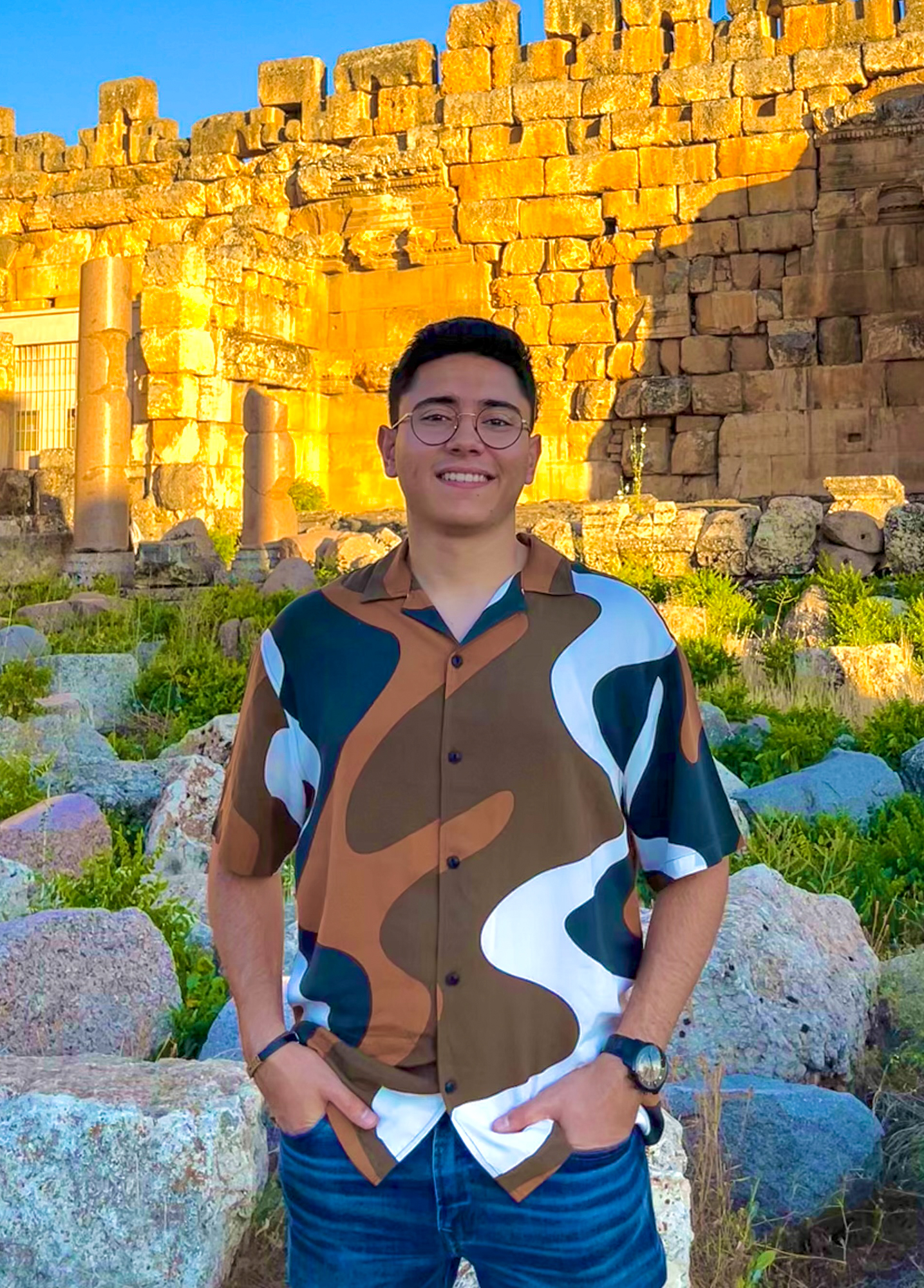Ophthalmology & Visual Sciences


Welcome to the Department of Ophthalmology & Visual Sciences!
The Department of Ophthalmology and Visual Sciences consists of over 40 ophthalmologists who work as physicians and surgeons and have teaching appointments with the Faculty of Medicine and Dentistry.
We have a vibrant teaching and learning environment with a strong commitment to undergraduate medical education, postgraduate medical education (residency and fellowship programs, including support for global health) and graduate student education.
Research takes place within a highly collaborative environment for both fundamental and translational research and builds on inter-departmental strengths in neurobiology, developmental biology, vascular biology, and molecular genetics of vision. Clinical research strengths include clinical trials, ocular genetics, electrophysiology and tele-ophthalmology.
The Eye Institute of Alberta (EIA) is a Center of excellence for all levels of ophthalmic care and serves a population of over 3 million people around Edmonton and in the North. The hub of the EIA is the Royal Alexandra Hospital with additional sites at the Stollery Children's Hospital, Westview Health Center and the Fort Saskatchewan Community Hospital.
Programs + Education
Residency Program
The Ophthalmology Residency Program is designed to train the next generation of ophthalmologists with an immersive, growth-oriented experience. Apply via CaRMS and explore detailed program information and support.
Medical Student Electives
Our diverse undergraduate electives offer tailored experiences for second, third, and fourth-year medical students, ranging from shadowing opportunities to structured electives.
Fellowship Programs
Clinical and Research Fellowships in Retina and Glaucoma programs provide an immersive experience in advanced patient care, teaching, and research, serving a vast population in Northern Canada. Based in Edmonton, our facilities include state-of-the-art equipment and a robust patient care framework, ensuring a comprehensive training experience.
Graduate Students
Our MSc and PhD programs provide a rich platform for exploring innovative, multi-disciplinary research aimed at enhancing patient-centered eye care. Students have full access to leading-edge research laboratories and a wide spectrum of research areas, supported by dedicated faculty supervision and various scholarship opportunities.
-
Teaching Excellence
The department is home to over 40 ophthalmologists who are not only practitioners but also serve as educators within the Faculty of Medicine and Dentistry.
-
Exceptional Research Environment
The department is known for its collaborative research atmosphere that spans both fundamental and translational research. Major research areas include electrophysiology of vision, models of retinal degeneration and therapies, ocular anatomy, and ocular genetics.
-
Commitment to Equity, Diversity, and Inclusion
We champion equity, diversity, and inclusion in patient care, serving as a referral center for a diverse population in Canada. Over a third of our physicians are women or from visible minorities, and we actively support global health missions and EDI initiatives.
Message from the Chair
Welcome to the Department of Ophthalmology and Visual Sciences. Our motto is “sapientia et lux” and we hope to provide wisdom and shed light on your vision problem through excellent care, research, and education. Our dedicated team of 43 surgeons, 16 residents and fellows, plus clinical and research staff are experts in Cataract Surgery, Retina, Cornea, Glaucoma, Pediatrics, Strabismus, Neuro-ophthalmology, Oculoplastics and Orbital Disease, Ocular Oncology, and Vision Rehabilitation.
Over the past 75 years, we have graduated 105 ophthalmologists that serve patients and communities in diverse regions. As the referral centre for 3 million citizens in Edmonton, northern Alberta, the Northwest Territories, Nunavut, and the Yukon we care for many heterogeneous patients. We participate in global health missions and equity, diversity, and inclusion projects. We embrace a culture of discovery and our faculty have published more than 800 peer-reviewed articles on Scopus.
Thank you for entrusting your eye care to us. We appreciate the ongoing support of our generous donors who champion our clinical care, education, and research efforts.
Edsel Ing
Chair, Department of Ophthalmology & Visual Sciences, University of Alberta
Chief, Edmonton Zone Section, Ophthalmology, Alberta Health Services
Royal Alexandra Hospital Foundation Endowed Chair in Ophthalmology Research
Congratulations to our Precision Medicine Award Winners!
Featured News
Convocation Spotlight: MSc '24 grad Constantin Mouzaaber
MSc in medical sciences graduate is advancing ophthalmology with groundbreaking research on peroxisome-deficient retinal cells.

Constantin Mouzaaber is graduating with a master’s in medical sciences, specializing in ophthalmology and visual sciences. He previously earned a BSc in general sciences with a biological sciences major and a business minor at the University of Alberta.
Originally from Aleppo, Syria, Mouzaaber shares what drew him to ophthalmology and visual sciences, what he has already accomplished in this field, and what he plans to do next.
What drew you to this area of study?
My initial interest in optometry led me to participate in undergraduate vision research. Shortly after starting, I realized that my modest research capacity at the time could yield novel scientific findings! After completing my project successfully, I wanted to keep going. Securing an NSERC summer studentship also motivated me to pursue graduate studies.
What are you most proud of from your time in the program?
I am most proud of the moments when I had the privilege of presenting my research findings to my University of Alberta mentors and international subject experts. Sharing my research with them and demonstrating to myself that I truly am the expert on my project was incredibly rewarding.
How did you stay motivated when things got tough?
I consider myself fortunate to have had the chance to undertake a world-class research project that aligned perfectly with my interests. I generated eye cells from patient-derived skin cells to better understand an inherited vision disorder. My intrinsic motivation to conduct experiments was complemented by the creative freedom I was granted. My supervisor, Dr. Matthew Benson, provided unwavering support and his constant encouragement, particularly when troubleshooting experiments, contributed immensely to the success of my research project.
Did you receive any awards or scholarships?
I am fortunate to have received a graduate recruitment award, generous CIHR (Canada Graduate Master’s Scholarship) funding, the Walter H. Johns Graduate Fellowship, the Alberta Graduate Excellence Scholarship, the Department of Ophthalmology and Visual Sciences Award in Precision Medicine, and the Sigma Xi Grant in Aid of Research.
Did you have any exceptional experiences?
During my undergraduate degree, I had the privilege of participating in a summer research internship at the University of Aachen in Germany. I discovered that being proficient in English and French significantly simplified the process of learning German (and that 7 a.m. language classes are not for me).
Competing at the University of Alberta 3-Minute Thesis (3MT) and Falling Walls pitch competitions during my graduate degree taught me how to deliver scientific information effectively to a general audience. I learned that spending time on the stage days ahead of the competitions helped me better control my nerves.
What were your go-to spots on campus?
My lab’s location on the 7th floor of Katz was difficult to beat! I spent most of my time there because it was convenient and quiet most of the time.
What advice would you give to a student thinking of entering this program?
I would like to remind prospective students that they will likely be the first in the world to capture biological phenomena related to their research projects. Many aspects of the field remain unexplored. I would also advise them to contact my exceptional supervisor as soon as possible because he is currently recruiting students!
What comes next for you?
As the first student graduating from my lab, I am proud to have, along with my supervisor, laid the foundation for national and international collaborations. After successfully generating the world's first human-derived peroxisome-deficient retinal cell model, I will next attempt a promising gene therapy intervention to restore healthy cellular function, bringing the treatment closer to clinical trials.
Leave a Legacy
Your donation supports new learning opportunities and experiences for students, funds research and builds spaces for innovation and education.